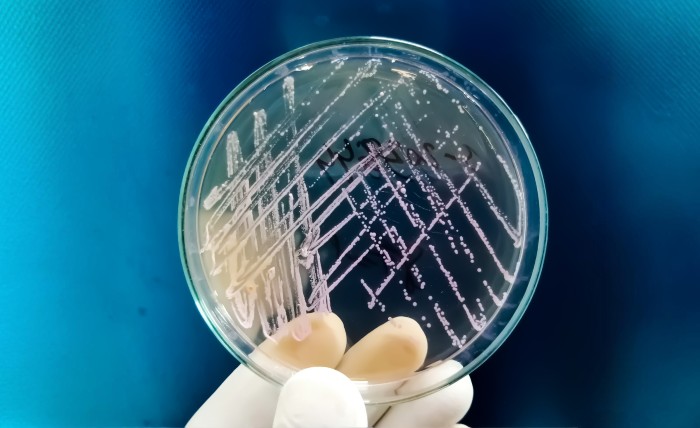- HOME
- Products & Services
- Microbial Identification
Microbial Identification
Our Microbial Identification Service provides simple identification based on the sequence analysis of the 16S rRNA or ITS regions, based on the Japanese Pharmacopoeia’s “Rapid Microbial Identification Method Using Gene Analysis”.
Service Contents
From the samples provided, we extract DNA and amplify the specified region (16S rRNA or ITS) using PCR. The resulting PCR products are sequenced directly, and the nucleotide sequences are determined. We then conduct a BLAST search to find homologous sequences, generating a list of microbes presumed to be closely related species.
- Work Process
- DNA Extraction
PCR Amplification/Purification
Sequencing (Double Strands)
BLAST Search
Identification Result Report - Reagents
- BigDye Terminator v3.1
- Sequencer
- 3730xl DNA Analyzer

Target Regions for Analysis
Depending on the subject of your test, you can choose from the following two primer sets:
| Bacteria 16S rRNA region |
10F | 5′-GTTTGATCCTGGCTCA-3′ |
| 800R | 5′-TACCAGGGTATCTAATCC-3′ | |
| Fungi ITS region |
ITS1F | 5′-GTAACAAGGT(T/C)TCCGT-3′ |
| ITS1R | 5′-CGTTCTTCATCGATG-3′ |
- * For custom primers or full-length analysis, please contact us.
Delivery
Results are provided via web download. A URL will be emailed when data is ready.
| Delivered Data |
| – Work Report (Identification Results) (.pdf) – Sequence Data (.txt) – Raw Data (.ab1) – Assembly Data (.txt) |
- * Data is deleted from the server 3 months after delivery.
Price and Turnaround Time
Please inquire for details.
Contact Form
Required for Analysis
|
Samples |
Culture sample*1:Petri dish, Pellet Extracted DNA*2 :DNA purified to be suitable for PCR |
|
Order Form |
Please contact us. |
- *1 We do not perform strain isolation work. Please send only pure cultured strains.
- *2 We do not accept pathogenic or potentially pathogenic microorganisms. Please prepare such specimens in the form of extracted DNA.
Cautions
- – Depending on the type of bacteria, the primers used in this service may not be suitable, making identification difficult. If we determine that the work cannot proceed, you will be charged for the work performed up to that point, and the analysis will be terminated.
- – If the provided samples are insufficiently isolated, making nucleotide sequence determination difficult, you will be charged the full amount.
- – We do not accept pathogenic bacteria, infectious virus particles, etc. Samples should be prepared to the DNA state.
- – Samples provided for analysis should comply with the P1 or P2 level regulations of the Cartagena Law on the use of genetically modified organisms by the Ministry of Education, Culture, Sports, Science, and Technology.
- – Sent samples will be sterilized and discarded after analysis. If you wish to have your samples returned, please contact us in advance.
- – Please ensure informed consent has been obtained for human clinical samples.
